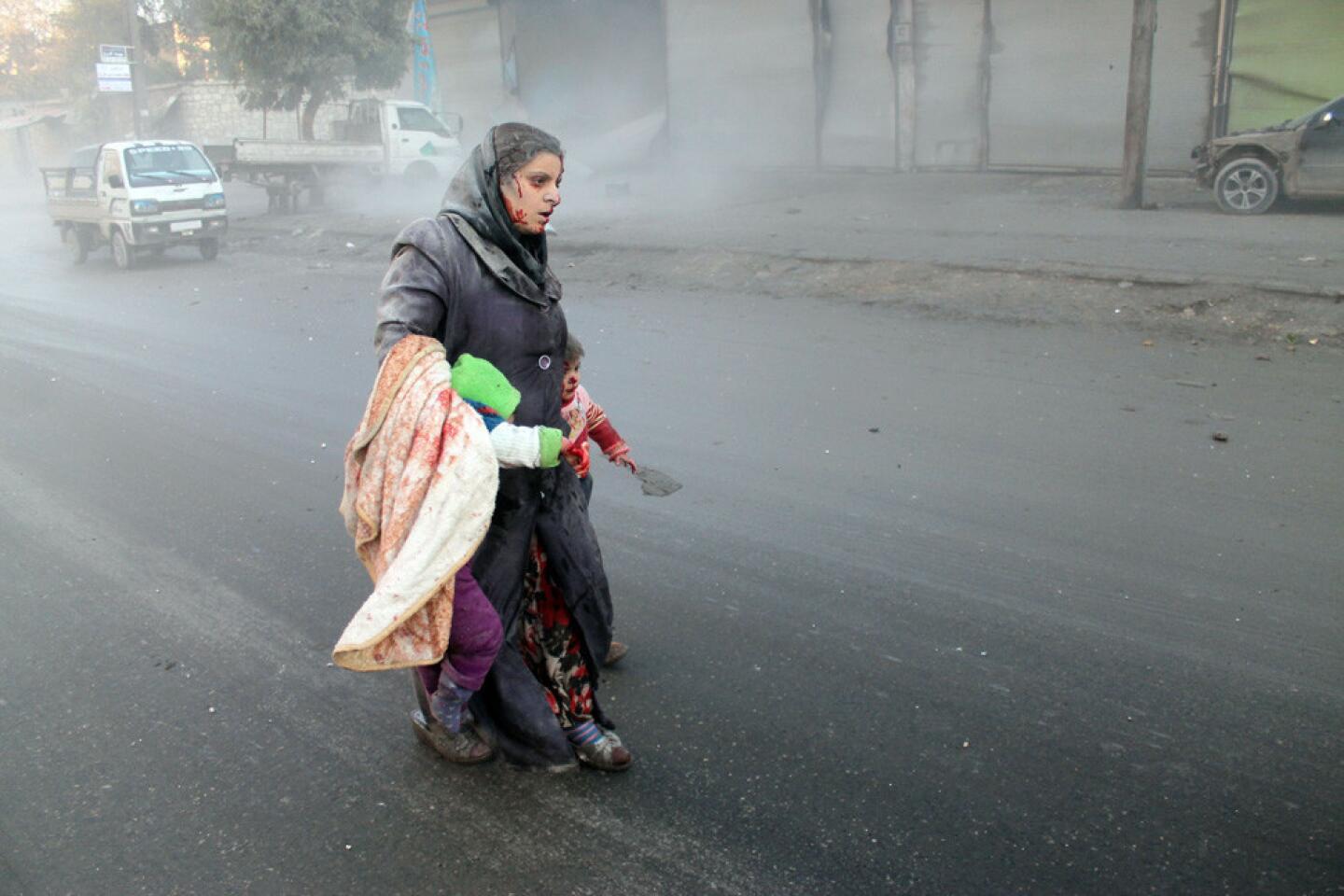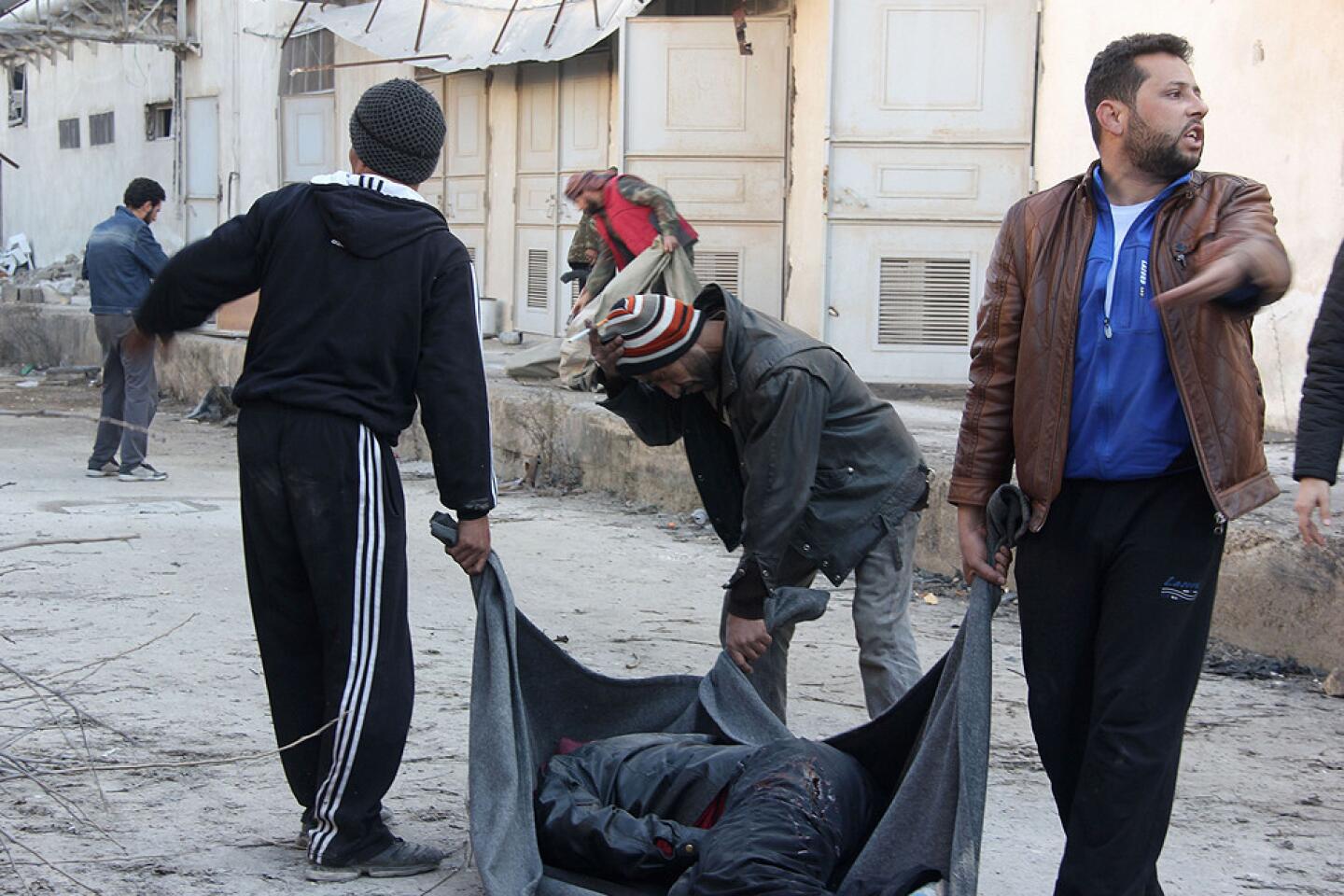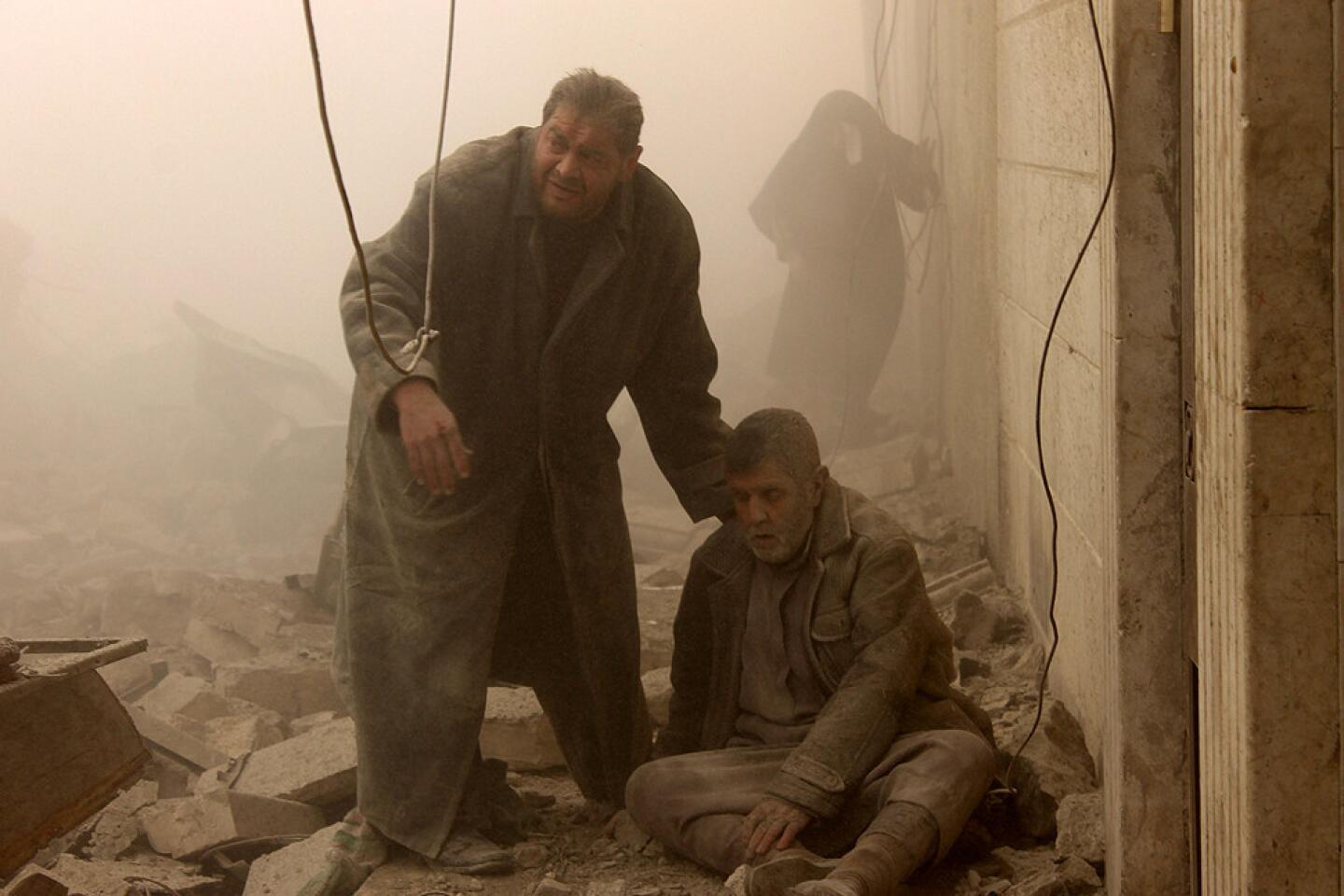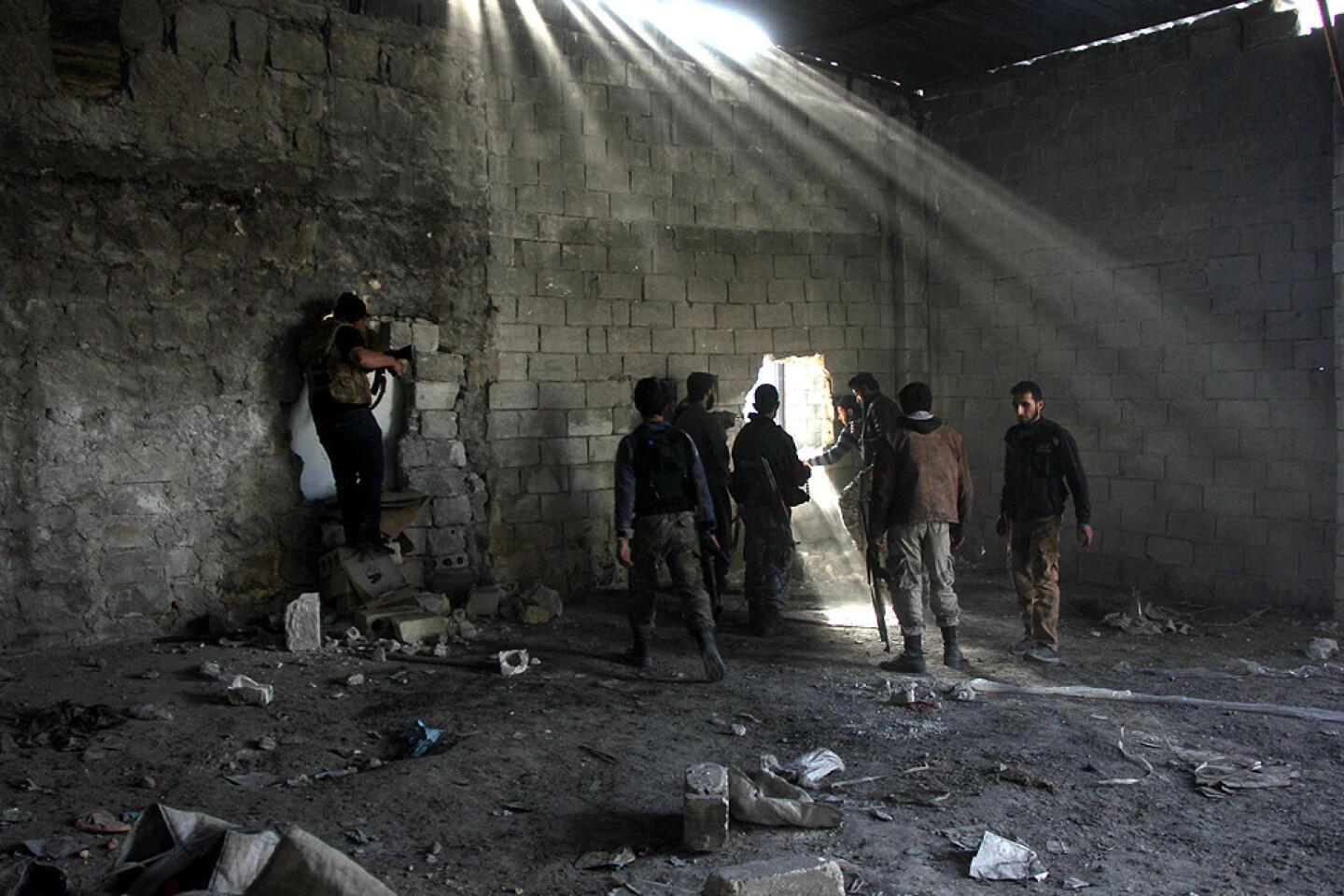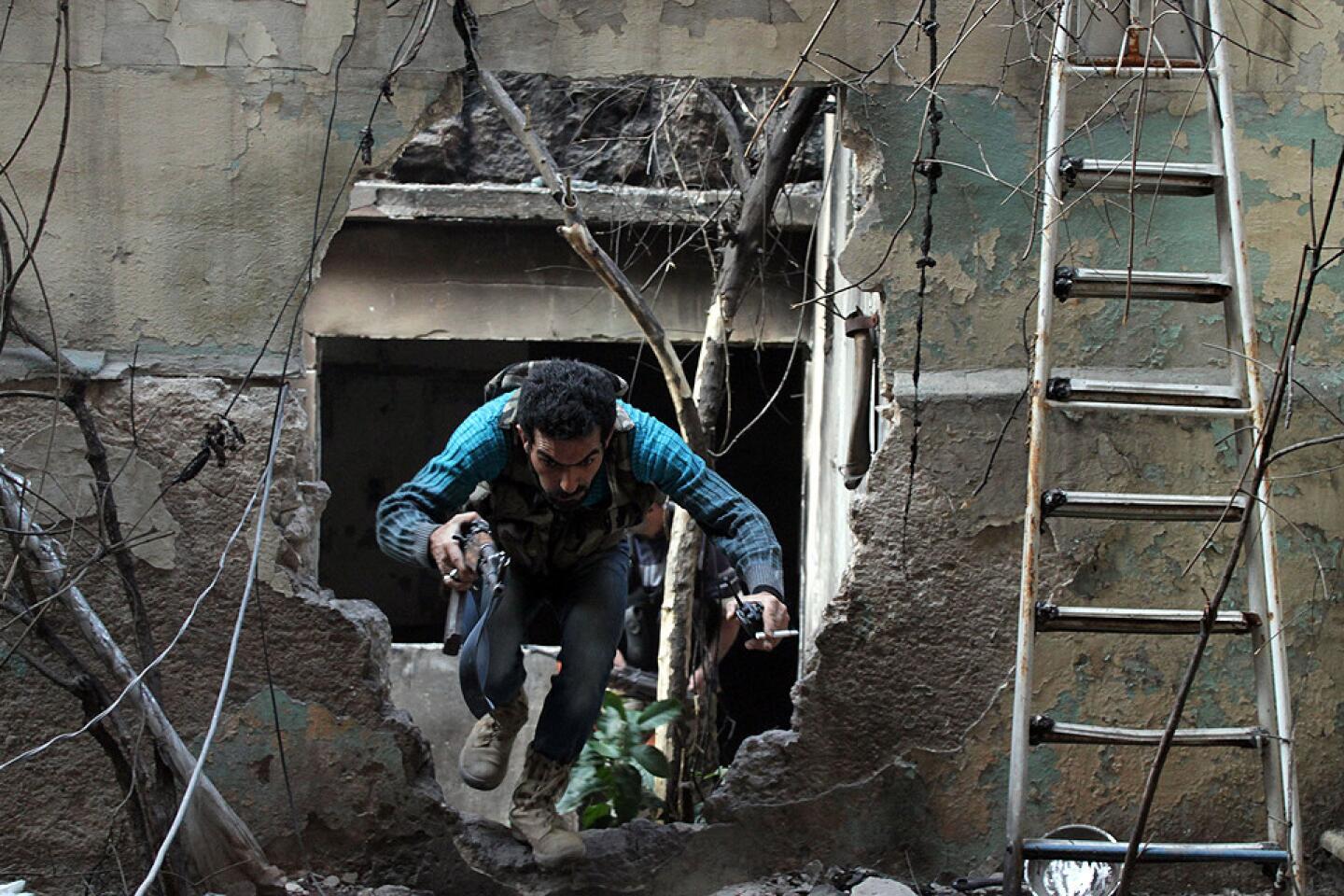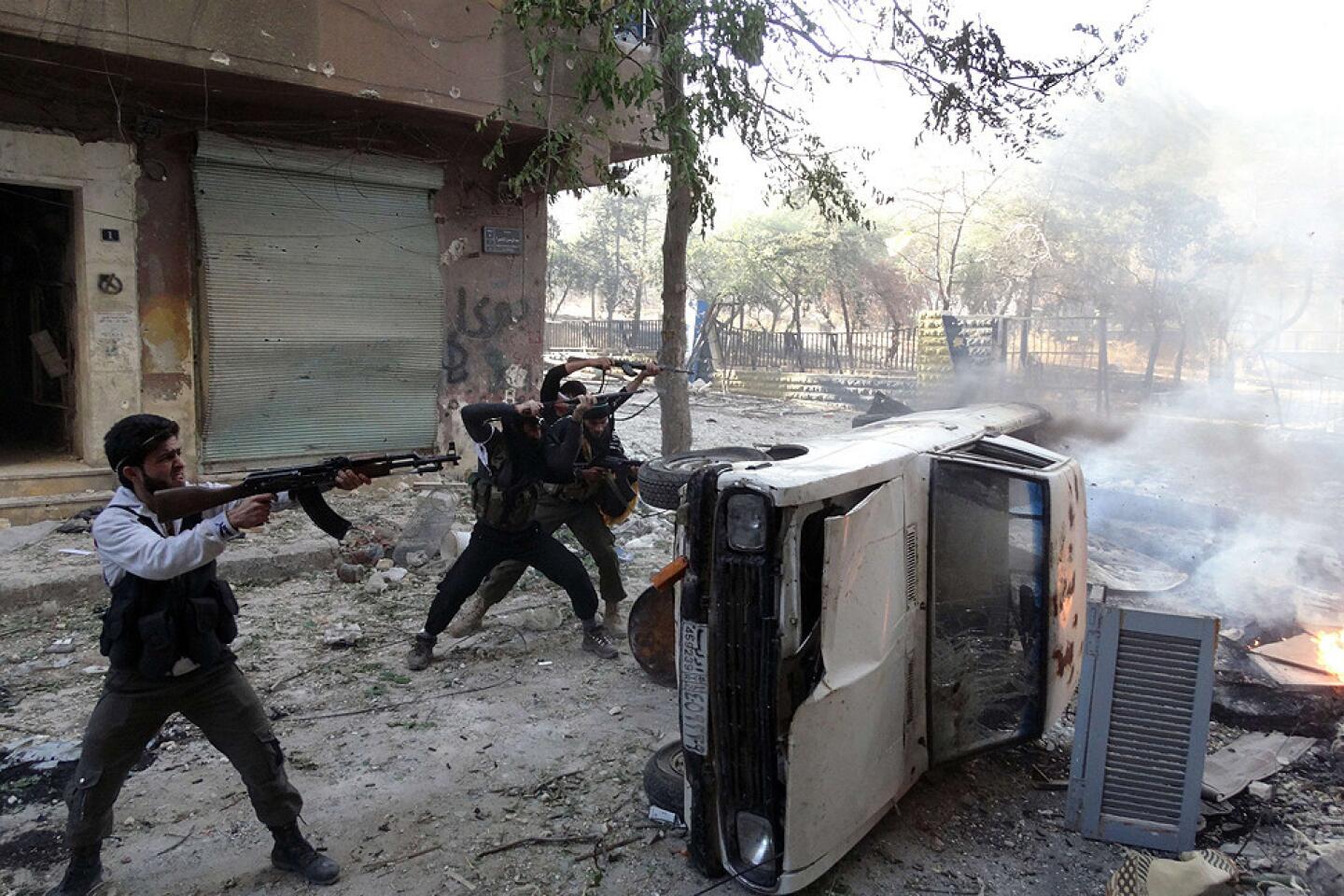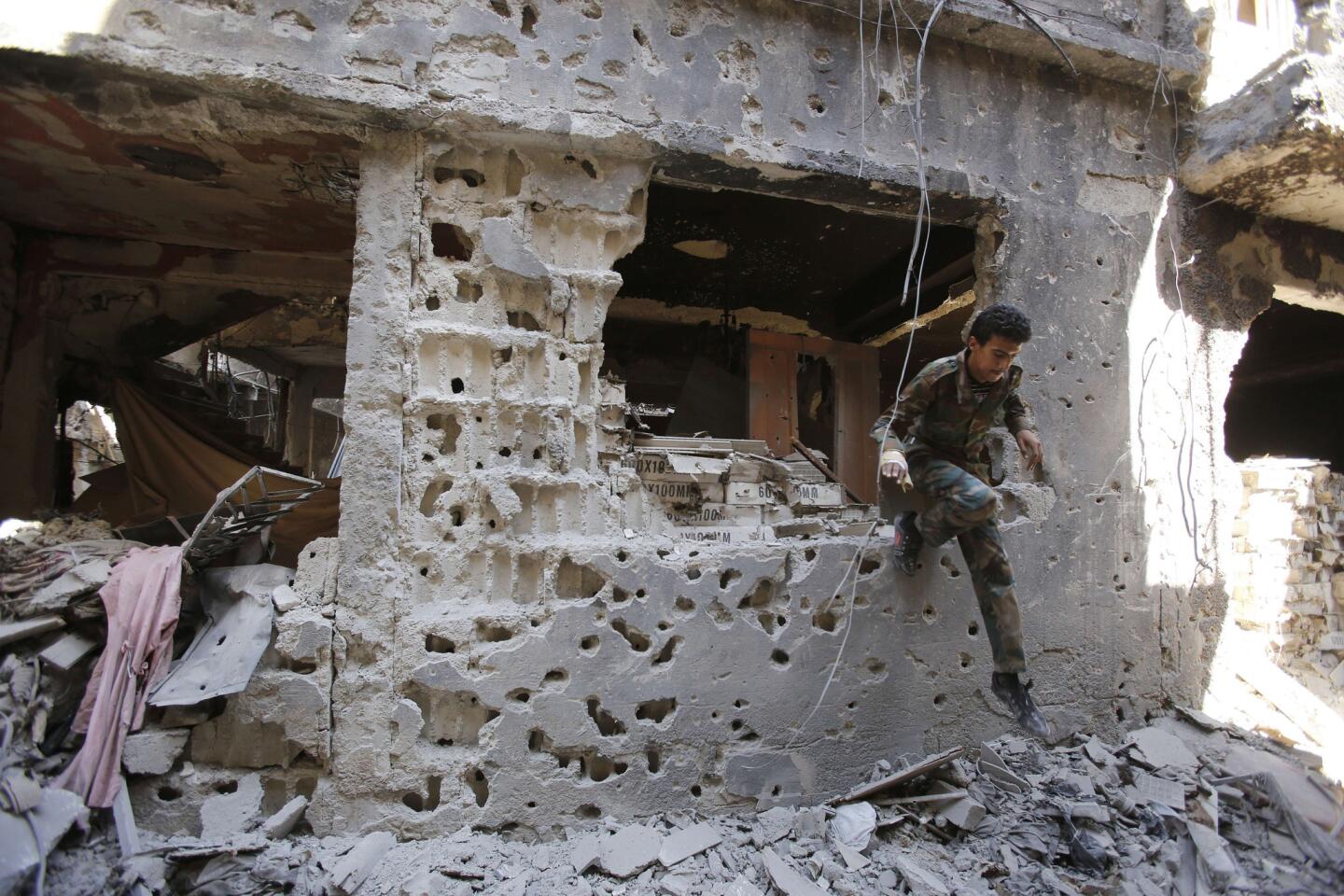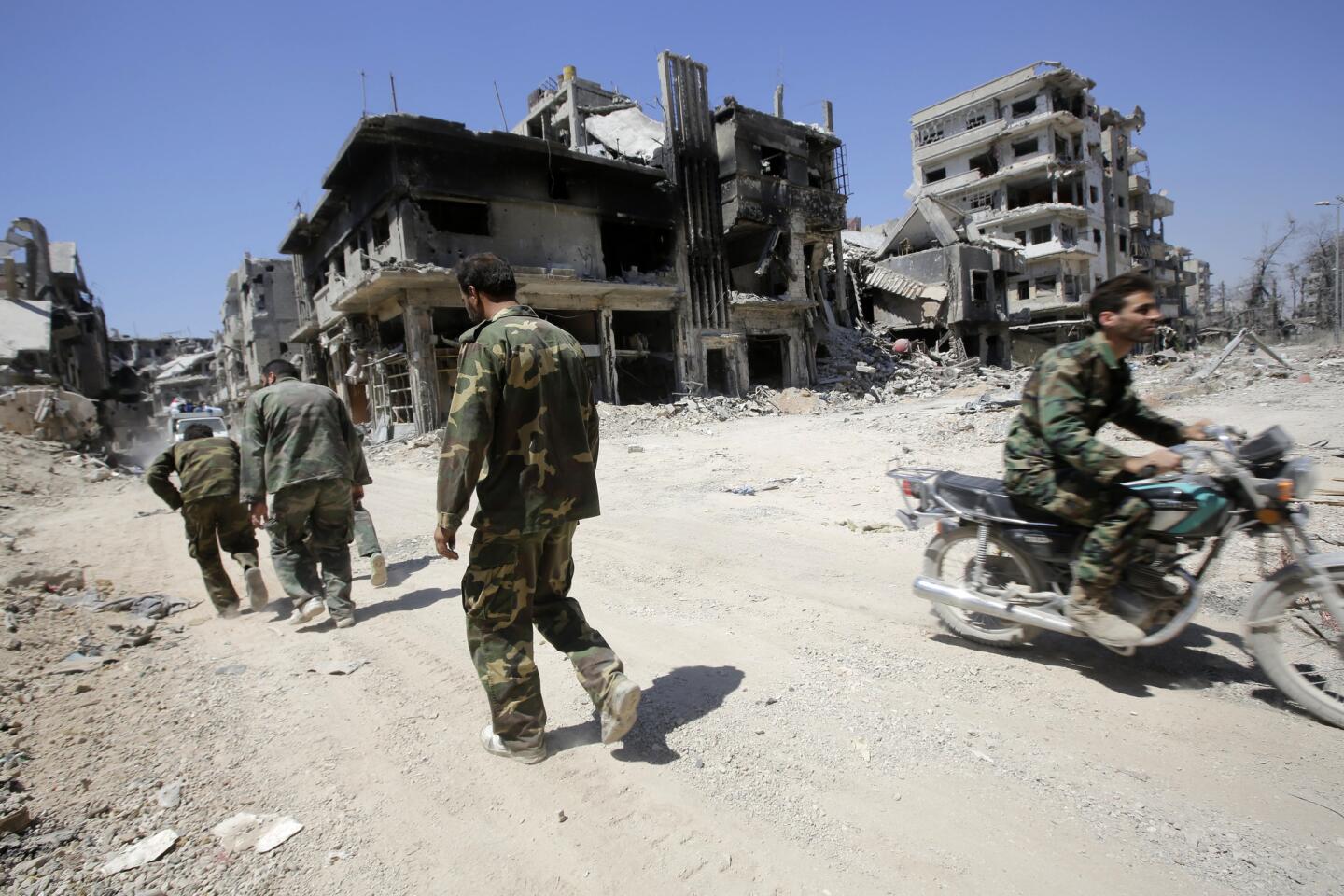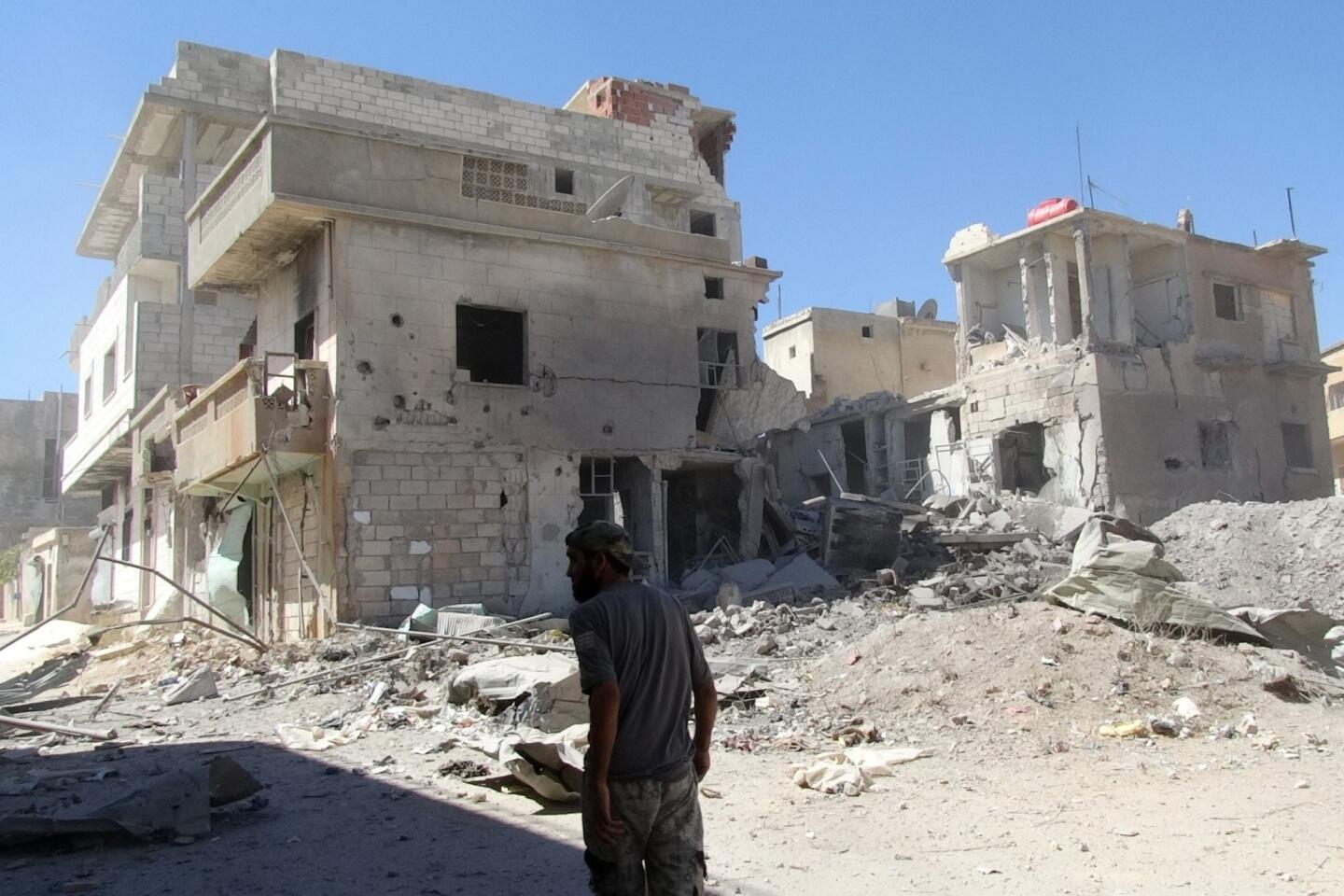Britain could vote again on hitting Syria, officials suggest
LONDON – President Obama’s decision to seek congressional approval for a military strike on Syria could open the door to another vote by the British Parliament, which rejected such intervention, senior officials here suggested Sunday.
The delay before a possible strike as Obama makes his case to U.S. lawmakers could give their British counterparts time to consider new evidence pointing toward the Syrian government’s culpability in gassing rebel-held neighborhoods in Damascus.
“It opens a very important new opportunity,” Malcolm Rifkind, chairman of the parliamentary intelligence committee, told the BBC. Rifkind supports force as an option in responding to the Syrian government’s alleged chemical attack.
Rifkind, a former defense secretary, said Prime Minister David Cameron and opposition leader Ed Miliband should now agree to revive the matter in the House of Commons, which dealt the prime minister a shocking defeat Thursday by rejecting his request for an endorsement, in principle, of a possible military strike against Syrian President Bashar Assad. Lawmakers from Miliband’s Labor Party were joined by skeptics among Cameron’s own Conservatives in shooting down the motion by a 285-272 vote.
DOCUMENT: U.S. chemical weapons intel
A grim-faced Cameron immediately announced that his government would not participate in any U.S.-led military intervention.
Miliband, whose party remains haunted by having dragged Britain into the Iraq war based on flawed intelligence, said during the debate that he did not rule out the use of force but that he awaited a clearer case for Assad’s culpability and the results of the U.N. inspectors’ investigation.
The Obama administration has since released its intelligence on the attack, and United Nations inspectors are due to issue their findings.
“We now have another week with new evidence coming forward every day,” Rifkind said, citing the Obama administration’s conclusion that Assad’s security forces mounted the horrific Aug. 21 attack, which the U.S. says killed more than 1,400 people.
The British government released its own intelligence assessment in advance of Thursday’s parliamentary vote, calling it “highly likely” that Assad’s regime was behind the attack.
Miliband and Cameron “need to get together, look at all the evidence and see whether the circumstances would make it appropriate … to allow the House of Commons to have further debate on these matters,” Rifkind said.
The Labor Party’s defense spokesman, Jim Murphy, left open the possibility that the issue could come before lawmakers again.
“You cannot simply rerun Thursday’s vote,” Murphy told Sky News. “But of course if Al Qaeda were to get their hands on chemical weapons, if there were to be really significant developments in Syria … then of course the prime minister has the right to bring that back to Parliament.”
ALSO:
Congressional vote on Syria fraught with political peril
U.S. has evidence sarin gas used on Syrian civilians, Kerry says
Teen sentenced to three years in prison for fatal gang rape in India
More to Read
Sign up for Essential California
The most important California stories and recommendations in your inbox every morning.
You may occasionally receive promotional content from the Los Angeles Times.
